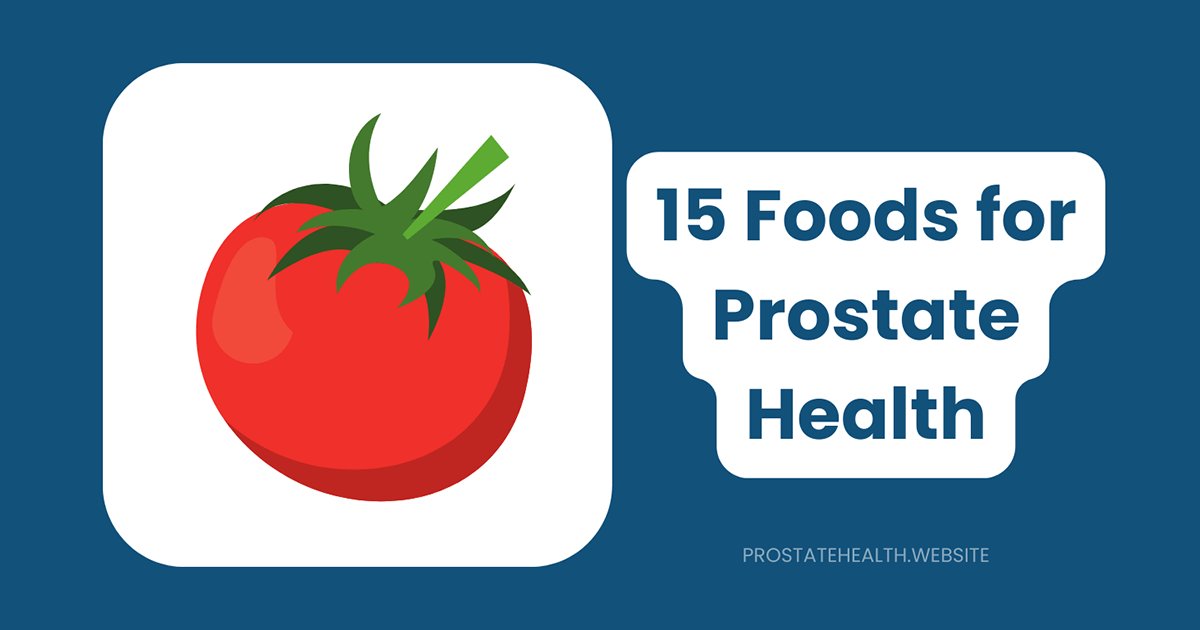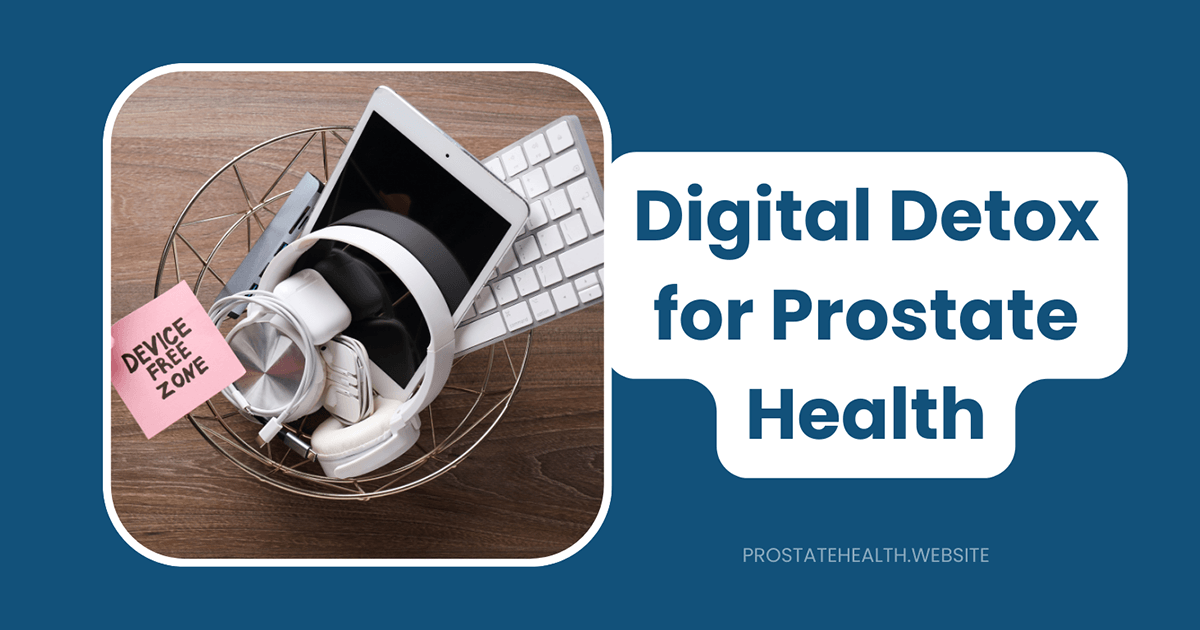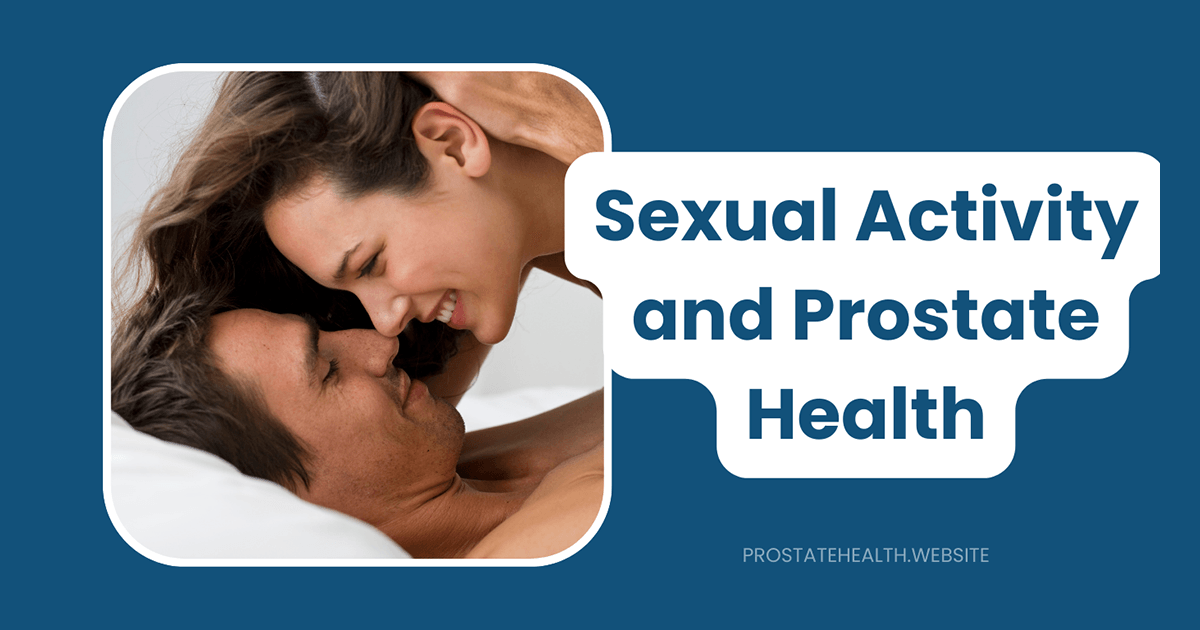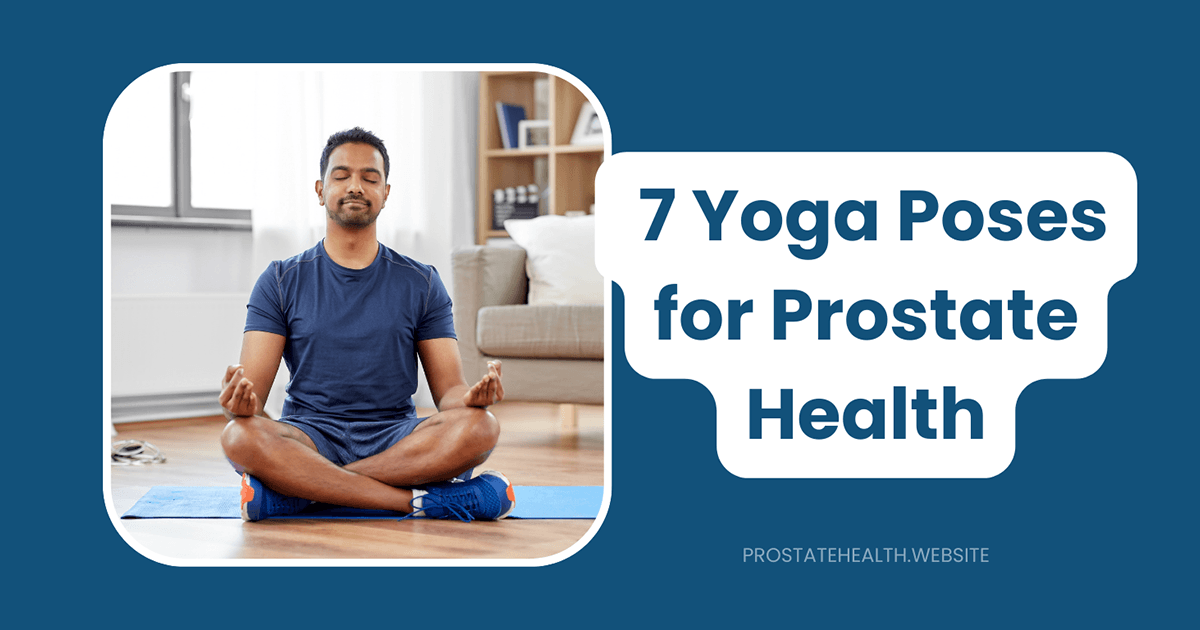Work-Life Balance and Its Impact on Men’s Health: The Prostate Connection
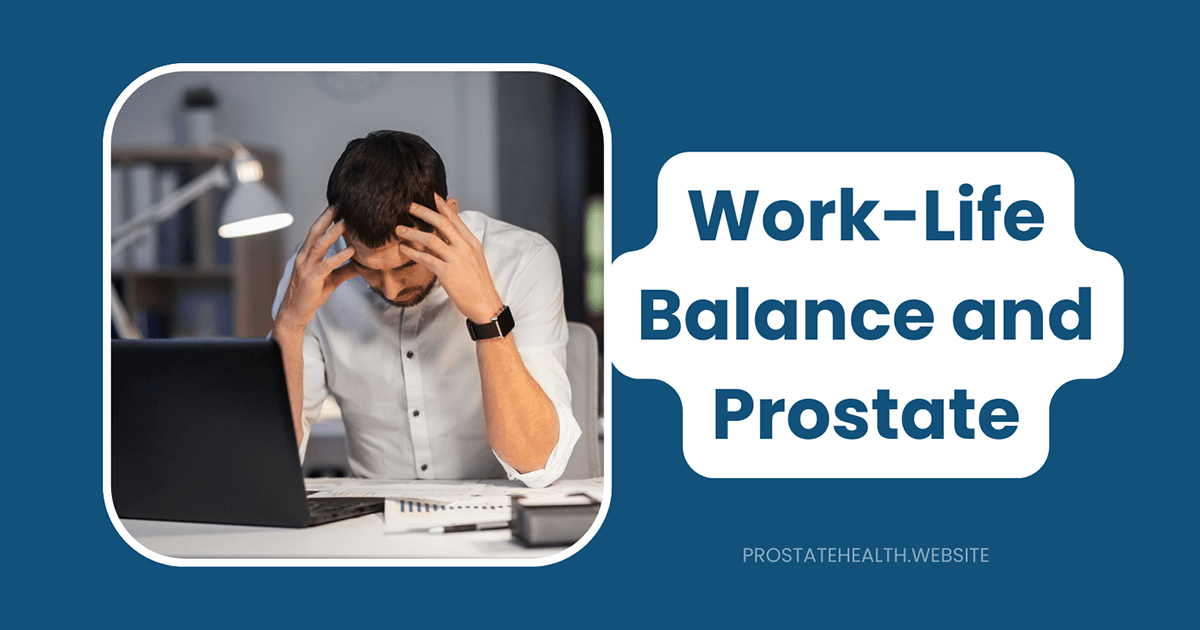
When I was 45, my career was soaring. I had just been promoted to senior management, my income had never been higher, and from the outside, I was the picture of success. What nobody saw were the 70-hour workweeks, the constant stress that kept me up at night, and the toll it was taking on my body—particularly my prostate health.
It wasn’t until a routine physical revealed elevated PSA levels that I was forced to confront an uncomfortable truth: my work-life imbalance wasn’t just affecting my relationships and happiness—it was potentially endangering my health.
If you’re a man navigating today’s demanding work environment, you might recognize this story. The pressure to excel professionally often comes at the expense of our physical and mental wellbeing. But what many of us don’t realize is how deeply this imbalance can affect specific aspects of men’s health—particularly prostate health.
The Stress-Prostate Connection: What Science Tells Us
The relationship between chronic workplace stress and prostate health isn’t just anecdotal—it’s backed by emerging research:
Hormonal Disruption
Chronic stress triggers the release of cortisol, our primary stress hormone. When cortisol remains elevated for extended periods, it creates a cascade of hormonal changes that can directly impact the prostate:
- Testosterone Suppression: A 2023 study published in the Journal of Endocrinology found that men with chronically elevated cortisol levels showed significantly lower testosterone production—a hormone critical for prostate health regulation.
- Estrogen Elevation: Dr. Mark Stengler, naturopathic physician and author of “Natural Healing for Men,” explains: “Prolonged stress increases estrogen levels in men, which can stimulate prostate cell growth and potentially contribute to benign prostatic hyperplasia (BPH).”
- DHT Conversion: Stress accelerates the conversion of testosterone to dihydrotestosterone (DHT), a hormone that can promote rapid cell growth in the prostate gland. This conversion is a key factor in benign prostatic hyperplasia.
Inflammation Response
The body’s inflammatory response to chronic stress can directly affect prostate tissue:
- A 2024 meta-analysis found that men with high workplace stress showed 62% higher markers of prostatic inflammation compared to those with lower stress levels.
- This inflammation can exacerbate existing prostate conditions and potentially contribute to their development.
Pelvic Tension
Stress doesn’t just affect us biochemically—it manifests physically:
- Many men unconsciously tense their pelvic floor muscles during periods of stress, which can worsen urinary symptoms associated with prostate conditions.
- This tension can create a vicious cycle where physical discomfort increases mental stress, which further tightens the pelvic floor.
The Work Schedule Factor: Shift Work and Prostate Health
For the approximately 15% of American men who work non-traditional hours, there’s an additional layer of concern:
Circadian Disruption
Night shift work has been classified as a “probable carcinogen” by the International Agency for Research on Cancer, with specific implications for prostate health:
- A comprehensive 2025 meta-analysis found that the risk of prostate cancer increased by 1%, 12%, 24%, and 39% after 1, 10, 20, and 30 years of night shift work exposure, respectively.
- Dr. James Ulchaker, urologist at Cleveland Clinic, notes: “Disruption of the body’s natural circadian rhythm affects melatonin production, which has protective effects against prostate cancer development.”
Sleep Quality and Testosterone
The quality and consistency of sleep—often compromised by demanding work schedules—directly impacts testosterone production:
- A 2024 study by the American Urological Association found that shift workers diagnosed with Shift Work Sleep Disorder (SWSD) had significantly lower testosterone levels and more severe hypogonadal symptoms compared to daytime workers.
- Lower testosterone levels are associated with increased risk of prostate issues and poorer overall health outcomes in men.
The Vicious Cycle: How Prostate Issues Affect Work Performance
The relationship between work stress and prostate health is bidirectional. Not only does workplace stress impact prostate health, but prostate issues can significantly affect work performance:
Productivity Impact
- Men with untreated BPH report 27% lower productivity at work due to urinary frequency, urgency, and sleep disruption.
- Prostatitis symptoms like pelvic pain can make sitting at a desk for extended periods extremely uncomfortable, affecting concentration and performance.
Career Advancement Concerns
- Fear of frequent bathroom breaks or discomfort during important meetings can create anxiety that further exacerbates symptoms.
- Some men avoid necessary medical appointments due to work demands, potentially delaying diagnosis and treatment of prostate conditions.
Breaking the Cycle: Strategies for Better Work-Life Balance and Prostate Health
The good news is that conscious efforts to improve work-life balance can have measurable benefits for prostate health. Here are evidence-based strategies:
1. Set Clear Boundaries Between Work and Personal Life
The Strategy: Create distinct separation between work time and personal time.
How to Implement:
- Establish a firm end time to your workday
- Create a “shutdown ritual” that signals the end of work
- Turn off work email notifications during personal time
- Designate work-free zones in your home
The Prostate Benefit: Research from the American Institute of Stress shows that men who maintain clear work-life boundaries have 31% lower cortisol levels—a key factor in reducing prostate inflammation.
2. Prioritize Quality Sleep
The Strategy: Make restorative sleep a non-negotiable priority.
How to Implement:
- Aim for 7-8 hours of quality sleep nightly
- Create a consistent sleep schedule, even on weekends
- Establish a relaxing pre-sleep routine
- Keep your bedroom cool, dark, and free from electronics
The Prostate Benefit: A 2023 study in the Journal of Urology found that men who improved their sleep quality showed a 43% reduction in nighttime urination (nocturia)—a common symptom of prostate conditions.
3. Incorporate Strategic Movement Throughout the Workday
The Strategy: Break up prolonged sitting with regular movement.
How to Implement:
- Set a timer to stand and stretch every 30 minutes
- Take walking meetings when possible
- Use a standing desk for part of your day
- Practice simple pelvic floor exercises that can be done discreetly at your desk
The Prostate Benefit: Regular movement improves blood flow to the pelvic region, potentially reducing prostate inflammation and improving symptoms. Research shows that men who sit for more than 6 hours daily without breaks have a 40% higher risk of BPH progression.
4. Practice Stress-Reduction Techniques
The Strategy: Incorporate evidence-based stress management into your daily routine.
How to Implement:
- Try a 5-minute mindfulness practice during your commute
- Use the 4-7-8 breathing technique during stressful moments
- Schedule short meditation breaks between meetings
- Consider apps like Calm or Headspace for guided stress reduction
The Prostate Benefit: A Northwestern University study found that men who practiced regular mindfulness showed reduced prostate-specific anxiety and improved urinary symptoms.
5. Advocate for Workplace Flexibility
The Strategy: Work with your employer to create arrangements that support better health.
How to Implement:
- Request flexible start/end times to align with your energy levels
- Propose work-from-home days to reduce commute stress
- Discuss compressed workweeks (e.g., four 10-hour days)
- Advocate for wellness programs that address men’s health specifically
The Prostate Benefit: Men with greater workplace autonomy report 28% lower levels of stress hormones and better overall prostate health markers, according to research from the American Journal of Men’s Health.
Special Considerations for Shift Workers
If your job requires non-traditional hours, these additional strategies can help mitigate the impact on your prostate health:
Light Management
- Expose yourself to bright light during waking hours, regardless of when they occur
- Use blackout curtains to ensure quality sleep during daylight hours
- Consider light therapy to help regulate your circadian rhythm
Melatonin Support
- Talk to your healthcare provider about whether melatonin supplementation might be appropriate
- Maximize natural melatonin production by avoiding blue light before sleep
- Create a consistent pre-sleep routine, even if your sleep schedule varies
Strategic Scheduling
- If possible, request forward-rotating shifts (morning → afternoon → night) rather than backward rotation
- Advocate for adequate recovery time between shift changes
- Try to maintain some consistency in meal timing, regardless of work schedule
Real Men, Real Results: Success Stories
James, 52, Executive: “After my PSA levels started rising, I implemented a strict ‘no work after 7 PM’ policy and added two 10-minute meditation sessions to my day. Within six months, my PSA stabilized, my sleep improved dramatically, and I actually found myself more productive during my focused work hours.”
Michael, 47, Shift Supervisor: “Working rotating shifts for 15 years had taken a toll on my health. I was diagnosed with BPH and was getting up 4-5 times a night. By working with my doctor on melatonin supplementation, using blackout curtains, and being religious about my sleep hygiene, I’ve cut my nighttime bathroom trips in half and feel much better overall.”
Robert, 58, Small Business Owner: “The stress of running my own business had me constantly tense. My urologist actually pointed out that I was unconsciously tensing my pelvic floor during our appointment. Learning to recognize and release that tension, plus delegating more at work, has made a huge difference in my prostatitis symptoms.”
When to Seek Medical Advice
While improving work-life balance can support prostate health, it’s not a replacement for proper medical care. Consult your healthcare provider if you experience:
- Difficulty starting urination
- Weak urine stream
- Increased frequency, especially at night
- Pain or burning during urination
- Blood in urine or semen
- Persistent pain in the lower back, hips, or pelvic area
Early intervention is key to managing prostate conditions effectively. See our guide on when to consider surgery for BPH for more information.
The Bigger Picture: Work-Life Balance as Preventive Medicine
The connection between work-life balance and prostate health represents just one aspect of how our professional lives impact our physical wellbeing. By prioritizing balance, we’re not just improving our quality of life—we’re practicing a form of preventive medicine.
Dr. Herbert Benson, founder of the Mind/Body Medical Institute at Harvard Medical School, puts it this way: “The greatest weapon against stress is our ability to choose one thought over another. By choosing to prioritize balance, men are making a profound investment in their long-term health.”
Your 7-Day Work-Life Balance Challenge for Better Prostate Health
Ready to experience the benefits yourself? Try this one-week challenge:
Day 1: Establish a firm work end time and stick to it Day 2: Take three 5-minute movement breaks during your workday Day 3: Practice a 10-minute guided meditation for stress reduction Day 4: Have a conversation about flexibility options with your supervisor Day 5: Create a sleep-optimizing bedtime routine Day 6: Spend 30 minutes in nature without your phone Day 7: Reflect on changes in your stress levels and any prostate symptoms
Conclusion: Redefining Success for Better Health
For too many men, success has been defined by professional achievement at the expense of personal wellbeing. But true success includes health, relationships, and quality of life alongside career accomplishments.
By recognizing the connection between work-life balance and prostate health, we have an opportunity to redefine what it means to be successful—not just as professionals, but as men committed to long-term health and wellbeing.
Have you noticed a connection between your work stress and prostate symptoms? Share your experience in the comments below.


